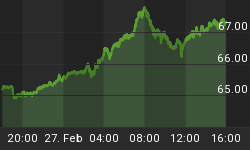The current environment for investors is perhaps one of the most confusing that many have ever encountered. Unpredictable markets now appear to take no clue whatsoever from underlying economic data, and maxims long cherished by traditional money managers are being abandoned in favor of seemingly illogical choices. We are in a world in which apparently intelligent investors are willing to pay a premium for 10 year Treasury bonds that are almost certain to lose real value if held to maturity. While such an environment is enough to encourage many to cash out completely, we believe that investors should remain focused on the fundamentals, even if fewer others have the conviction to do so.
Perhaps the biggest financial story so far this year is not the fiasco of the Facebook IPO or the computer malfunctions that brought down venerable Knight Capital in a matter of minutes, but the persistently low volumes on the major North American and European exchanges. For generations, many investors assumed the benefits of economic growth were most likely transferred to the public through the ownership of common stock. For decades they were right. But the past dozen years of substandard stock performance, financial fraud, flash crashes and overhyped IPOs have threatened this assumption.
Indeed, in a recent interview, Bill Gross, the famed head of the world's largest bond trading firm, declared the "death of equities" and posited that in the future, Americans will stick with safer assets and will no longer seek the oversized returns long expected from stock ownership. While Gross' statements might be viewed as a less-than-subtle pitch for Pimco's fixed income products, it says much about the current capitulation that such statements can even be made by a high profile analyst. But the current unpopularity of stocks is understandable. Faced by an absence of positive economic tailwinds, markets have become event driven and progressively divorced from underlying economic realities. Such markets are inherently volatile, creating conditions that favor short-term traders rather than long term investors. This situation is magnified by computerized high frequency trading where the conventional investor is disadvantaged greatly.
With little conviction in an upward trajectory, Wall Street has been funnelling money into Macro hedge funds that look to tap into what are hoped to be more sweeping and predictable economic trends. After many of these macro funds posted better than market returns during the financial crisis of 2008, money began pouring in. According to Hedge Fund Research, Inc, from the end of 2008 through the first quarter of this year, assets in Macro-focused hedge funds surged 66% to $462 billion. Hedge funds are only open to the biggest and most sophisticated investors, and most would therefore assume that these flows represented the "smart money." However in recent years, macro funds have underperformed. According to Hedge Fund Research, in the first six months of 2012, such funds lost 0.5% on average compared with a 9.5% climb by the S&P 500. What can we say about a market where even the "smart money," seeking predictable returns, gets caught on the wrong side of the ledger?
It is doubly ironic that as the economic data out of the United States continues to disappoint, the S&P 500 is up more than 12 percent thus far in 2012, and up more than 19 percent over the past 12 months. The global economy is operating on one cylinder, and the S&P 500 is approaching a four year high! So while it may be somewhat simple to draw economic conclusions, the ability to generate short term financial returns from those conclusions is proving to be much more difficult. While pundits offer flimsy rationale to support the rally, it appears that a dangerous disconnect exists between the real economy and financial markets. The fact that the legendary hedge fund manager, Louis Bacon, felt compelled to return some $2 billion to his investors provided perhaps a dramatic insight into some fundamental market driven changes taking place. Other investors, fleeing equities, have turned to bonds, especially Treasury securities. This enormous flood of investors' funds from at home and abroad has driven 10-year Treasuries to a yield of some 1.55 percent, or minus .15percent in real terms.
Politicians, faced with the economic and financial repercussions of the great Greenspan asset bubble, have shown little willingness to confront the underlying problems of overborrowing and insolvency. Indeed, with proposed changes in taxation and regulation,politicians have added to the level of uncertainty. Furthermore central banks, seen previously as economic magicians, have demonstrated an inability to influence to make a real or lasting impact.
But a study of long term market history shows that economic reality eventually overcomes market aberrations. Rather than placing one's trust in what appears to be working, (however illogically) investors should remain focused on where the world is headed and invest for the long term. Anticipating worldwide recession, conservative investors should favor not just cash, but real cash or precious metals. Income seeking investors might focus on blue chip dividend paying stocks that trade at low multiples, preferably in countries that have demonstrably better economic performance than the United States.
Although the current market may indicate to some that the rules have changed, those with a greater understanding of history and economics know that it has not. Over time, returns are still a function of economic fundamentals. Investors should invest accordingly.
Subscribe to Euro Pacific's Weekly Digest: Receive all commentaries by Peter Schiff, John Browne, and other Euro Pacific commentators delivered to your inbox every Monday!
Order a copy of Peter Schiff's new book, The Real Crash: America's Coming Bankruptcy - How to Save Yourself and Your Country, and save yourself 35% off!















